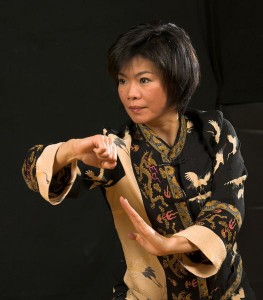I have written the paper linked here ( The Threefold Model of Practice) to give some detailed reflections and proposals for practice classes in the Middle Way Society. It includes the following:
- Some reflections from my experience of practising for around 20 years in the Triratna Buddhist Community (then FWBO), an assessment of the strengths and weaknesses of Triratna practice, and what we might learn from them
- A reflection that most people probably need to engage with the Middle Way through practical experience rather than only through theory

- A proposal for a threefold model of practice in MWS, meaning that we aim to work in parallel at the integration of desire, meaning and belief: for example, using meditation alongside the arts and critical thinking
- Proposals for how we might get MWS practice classes going in different places, to help a wider range of people
I seek feedback on these proposals from anyone interested, whether or not you are a member of the society and whether or not you envisage ever being involved in practice classes. It is not final and may be improved upon.
Picture: Tai Chi pose (Wikimedia Commons)

I would like to be involved in this. The thought occurs that you, Robert, might work up an idea for a “workshop” event that contained a small number of experiential exercises that supplied enough experiential data to begin to surface data from which the meaning of migglism could be constructed by participants working together in dialogue. They would thus be able challenge each other’s beliefs, and perhaps synthesise a shared meaning of the middle way.
Some variant on the (reflective) experiential cycle linked to embodied awareness, and (as you suggest) some artistic/creative activity to support the integrative dynamic. I’m just freewheeling here…..
But I think a “model” workshop (say 3-4 hours) that several of us could try out and evaluate?
It’s going to be a bit messy to start with. Maybe rowdy! But I like the idea. It might lead to more ‘classes’, but I’m not sure how many classes would do the business, or how they would be paid for (especially if/as you want to open this up to wider-range all-comers, and not just the comfortably-off). We don’t get many painters, postmen, women courier drivers or tanning-parlour personnel at meditation or mindfulness events in Essex……:)
That sounds exciting Peter, would you like to set up a workshop near you?
If I was twenty years younger, I would have thought about setting up an art class for adults in our local community centre, to work on themes of integration. These days, I lack the energy to organise it and I don’t know of anyone who would share the idea. Sorry to be so negative, I have to accept that being 80yrs. has a few drawbacks, not that I feel ancient!
I am beginning a ‘Tai Chi for Seniors’ course, using a DVD at home. There are classes in Brighton, but they are held in the evening, when I prefer to stay at home. Finances are an issue too.
Hi Peter,
The way I’m planning to try out local classes near me is to hire a hall and just ask for donations to cover that cost. Any excess can go to society funds or to cover other expenses (e.g. meditation cushions).
Could you clarify what you mean by: “a “workshop” event that contained a small number of experiential exercises that supplied enough experiential data to begin to surface data from which the meaning of migglism could be constructed by participants working together in dialogue.” Are you talking about working with hypothetical scenarios? Obviously that’s possible, but working with people’s actual experiences might be more immediate.
I’ve just been talking to a focusing trainer called Jerry Conway, who’s sympathetic to our ideas and would be interested in offering some online training in focusing. He says it can be done quite well through Skype. We would have to pay him, but this would work out cheaper the more people were interested.
Rather belatedly, Robert: no, not hypotheticals. I agree with you on the merits of working with people’s here-and-now experience (and with their perceptions of the antecedents to that experience, their perceived ‘chain of causation’) without imposed frameworks of analysis etc. Much like Focusing (I use the capital F to mark Gendlin’s technical use of the term).
As mentioned elsewhere I’m definitely up for online training and hope that enough people will sign up to make it viable. I’ll pay up to £80 for ten weeks myself.